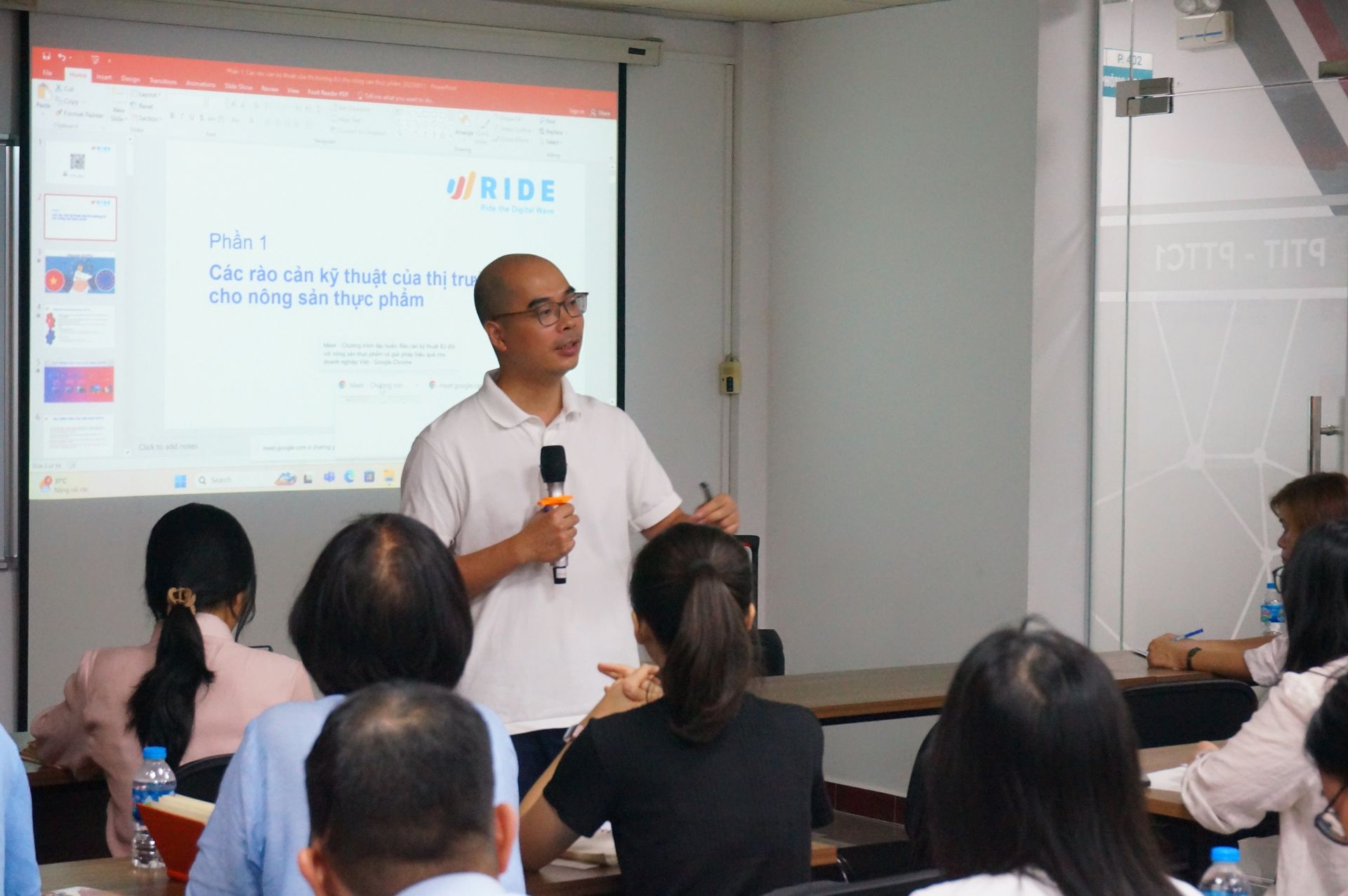On August 14, 2025, the training program "EU Technical Barriers to Agricultural and Food Products and Effective Solutions for Vietnamese Enterprises" was successfully held at the Academy of Posts and Telecommunications Technology. The training course was implemented by the Institute for Research on Organization and Digital Economy (RIDE), chaired by the Trade Promotion Agency (Vietrade) - Ministry of Industry and Trade and sponsored by the Swiss Government (SECO), to equip knowledge and technology to help small and medium-sized enterprises in the agricultural and food industry improve their competitiveness and successfully export to the EU market.
The training session attracted the participation of many representatives of food production and export enterprises and business support organizations (BSOs).
Attending the program were prestigious experts and speakers:
- Mr. Tran Nguyen Cac - PhD, President of the Research Institute of Digital organization and Economy.
- Mr. Nguyen Van Dan - Doctor of Agriculture, Senior Expert on digital transformation and green transformation.
- Mr. Tran Van Hau - Technical Director of Digital Fidelity Vietnam Joint Stock Company.
- Mr. Pham Tien Giang - Senior Expert, IOSIN Institute of Science and Innovation.
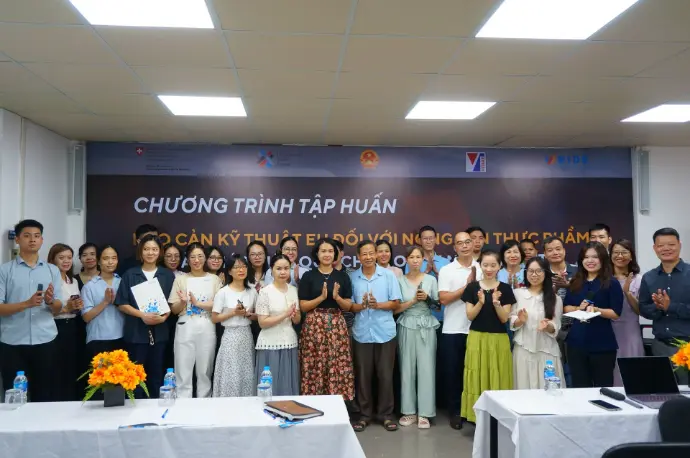
Students, lecturers and organizers took a group photo before starting the training program.
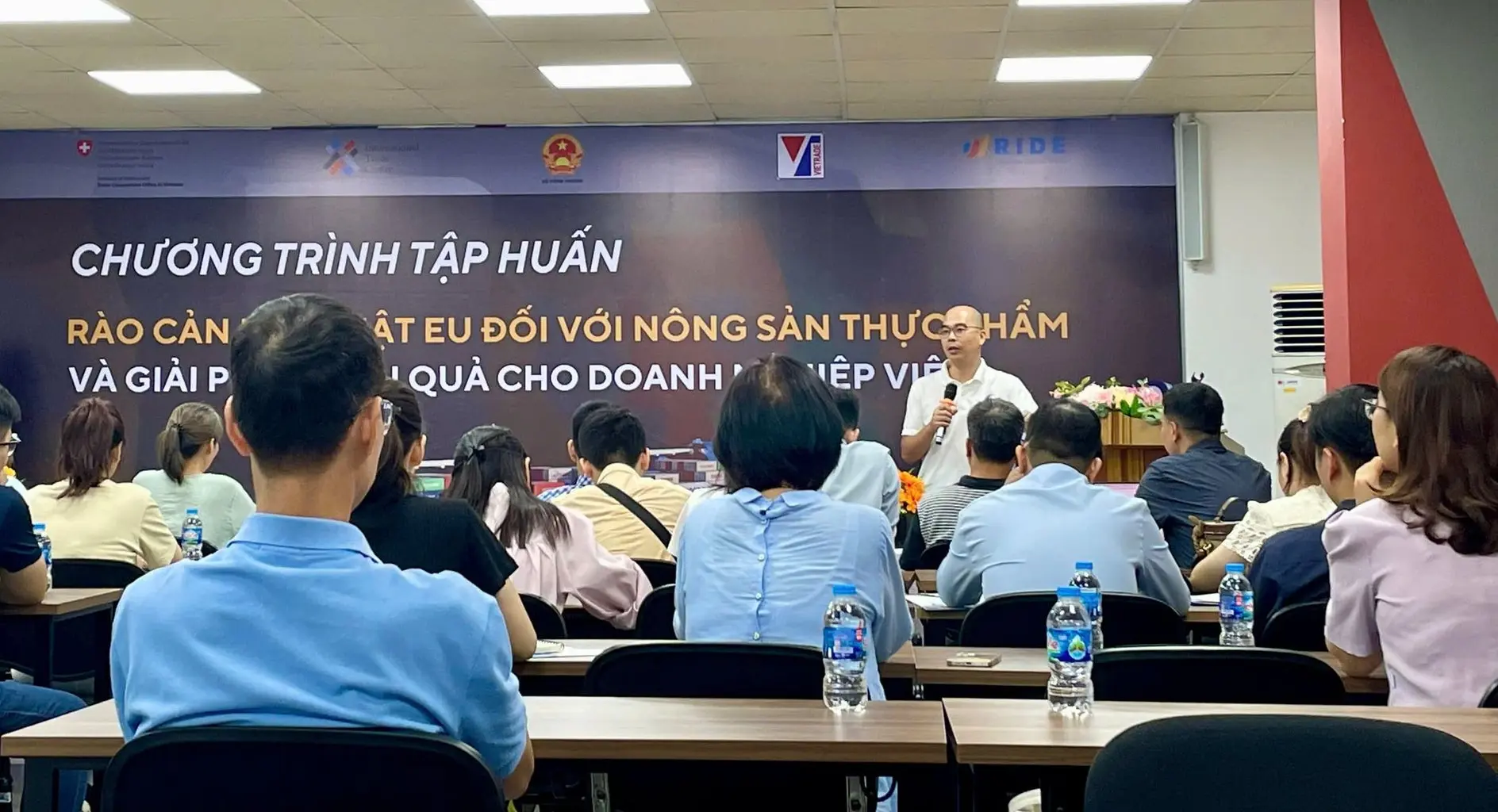
Opening: Laying the foundation for cooperation
The program began with an opening speech from Dr. Tran Nguyen Cac, Director of the Institute for Organizational and Digital Economy Research. The speeches emphasized the importance of understanding and complying with international regulations, while affirming the solidarity of all parties in supporting Vietnamese enterprises on the path of global economic integration.
Part 1: Decoding technical barriers and opportunities from EVFTA
In this section, Lecturer - Dr. Tran Nguyen Cac provided an overview of the Vietnam - EU Free Trade Agreement (EVFTA), which took effect from August 2020. This agreement offers the opportunity to eliminate tariffs on 99% of goods exported from Vietnam to the EU within 7 years. However, to make the most of this opportunity, businesses must face strict technical barriers, especially standards on food safety, environmental protection and labor welfare.
To help businesses better understand, experts have delved into the important certification requirements of the EU market. These are mandatory standards to ensure quality and safety for consumers, including:
- Global G.A.P: Standard required for crop, livestock and fishery products.
- HACCP: Suitable for all types of food, ensuring control of food safety hazards during production.
- EU Organic Certification: For organic products, emphasizing the absence of synthetic chemicals and pesticides.
- ISO 22005: Ensuring traceability throughout the supply chain.
Part 1 is taught by Dr. Tran Nguyen Cac - who has many years of experience working in Europe and in the field of traceability.
Lively discussion with participants
Đặc biệt, tại phần thảo luận, đại diện các đơn vị sản xuất và thương mại nông sản Việt, đã có những chia sẻ thực tế về sản phẩm nông sản Việt và trải nghiệm xuất khẩu nông sản vào thị trường EU. Những chia sẻ này đã giúp các doanh nghiệp tham dự có cái nhìn trực quan và thiết thực hơn về những thách thức cũng như cơ hội thực tế trên thị trường khó tính này.
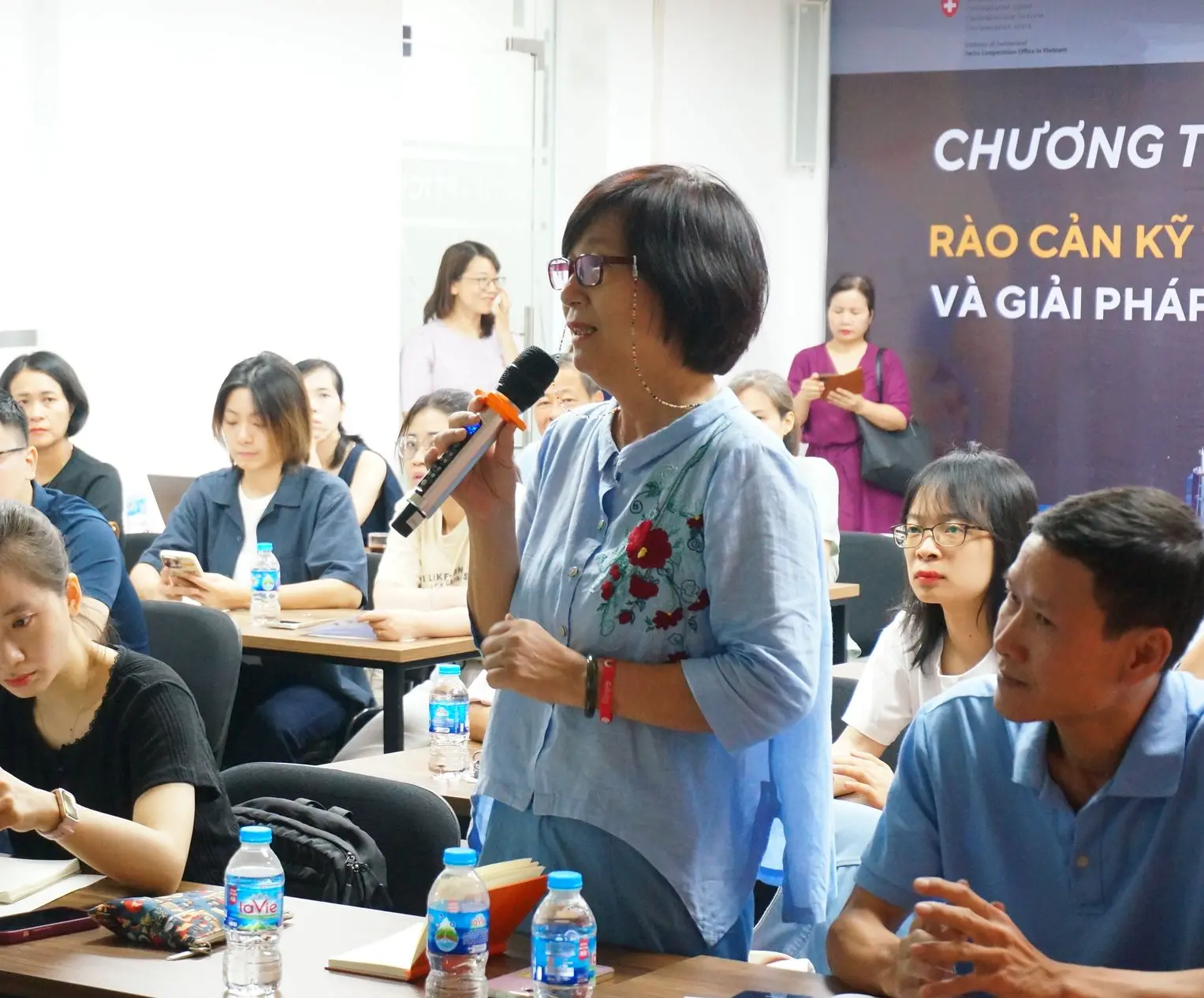

Learn about EU labelling regulations and how to apply technology to labelling
Part 2 & 3: Understanding Labeling and AI Digital Assistant Lala
Next, Lecturer - Dr. Nguyen Van Dan delves into food labeling regulations in Vietnam and the EU. An alarming fact is that violations of product labeling, including the use of fake packaging, labeling of unknown origin or incomplete information, are undermining the reputation of businesses and causing a loss of consumer confidence.


Special Launch of Lala - The Labeling Digital Assistant
Lala and its uses in food labeling process
To address these challenges, the AI-powered “Lala Digital Assistant” has been introduced as a breakthrough solution. Lala is a chatbot developed to guide businesses in complying with food labeling regulations for exports to the EU, helping to optimize processes, save time and prepare for integration.
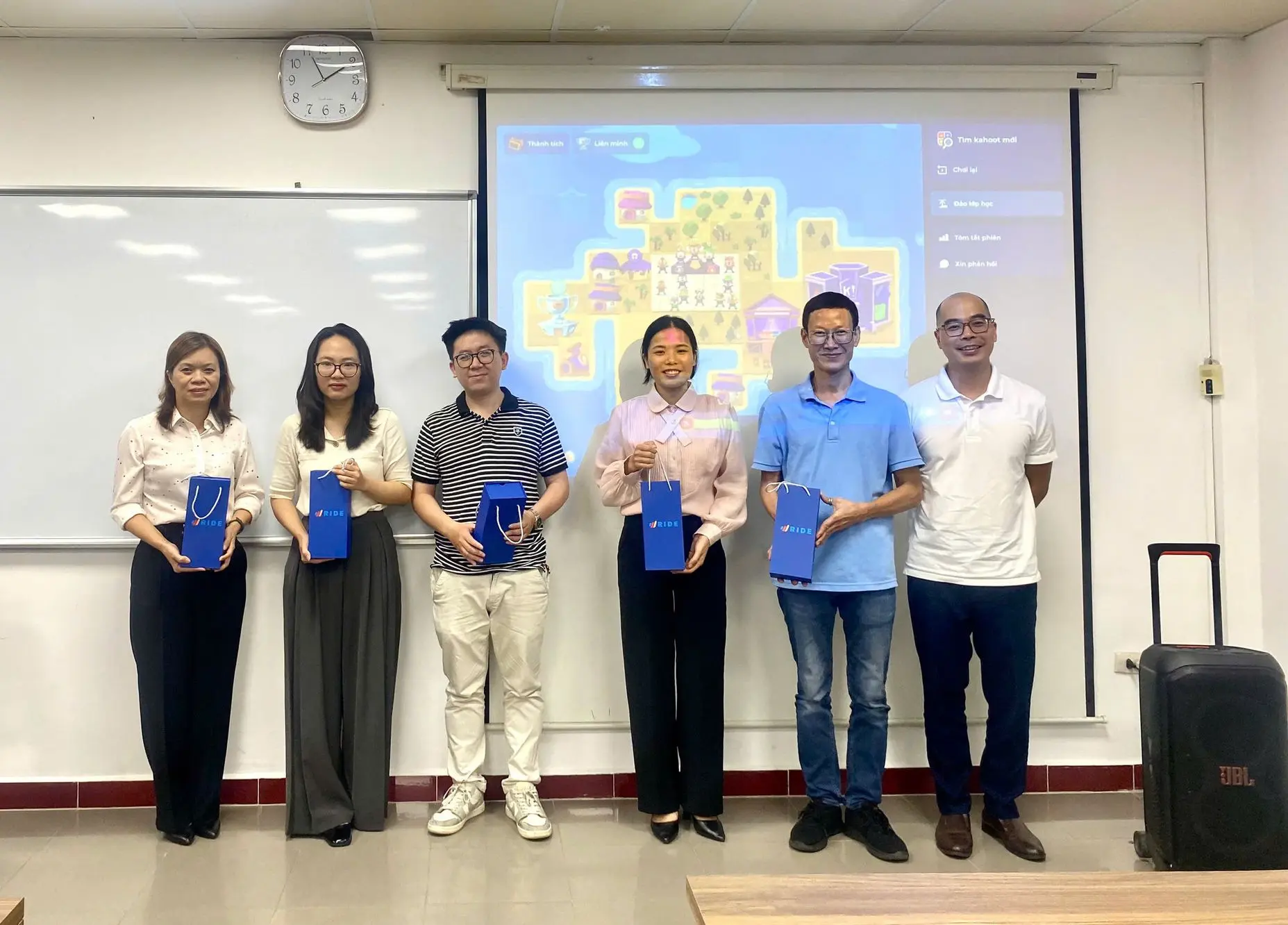
Early afternoon: Review knowledge through interactive games
After the lunch break, the hall became lively with a game to test the knowledge learned in the morning. Enterprises enthusiastically participated in answering questions related to the EVFTA Agreement, TBT, SPS standards and labeling regulations. As a result, the top 5 people with the best achievements received meaningful gifts from the organizers.
Part 4 & 5: Electronic label application and traceability (TXNG)
Next, students learned about electronic labels (e-labels) and the importance of traceability (TXNG). Electronic labels are a form of providing product information through digital means, usually QR codes or Data Matrix. According to regulation (EU) 1169/2011 (FIC), electronic labels are a supplement to mandatory physical labels. Electronic labels help businesses expand information without being limited by print space, build trust with customers, and support marketing activities.
Experts have clarified the concept of traceability (TR) as the ability to track the movement of products through defined steps in the production, processing and distribution process. This has been a mandatory requirement of the EU market since 2005. The application of electronic labels in TR helps businesses and managers quickly identify the batch, production date, and supplier. This not only helps prevent counterfeiting and protect brands, but also provides transparent data, increasing confidence for consumers and importers.
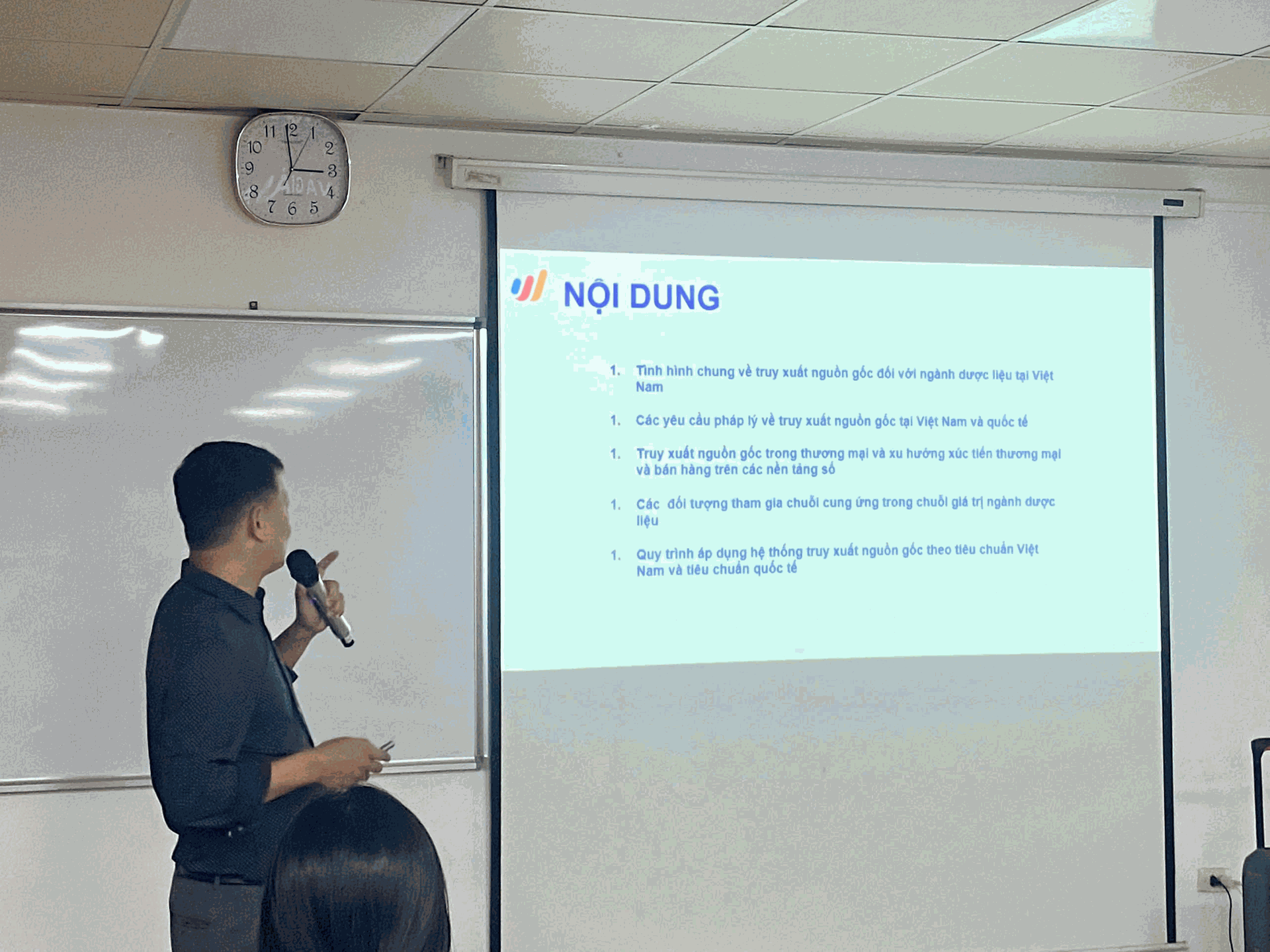
Dr. Nguyen Van Dan and his sharing of practical experiences on traceability
The moment of awarding certificates and closing the program
At the end of the program, RIDE Institute held a certificate awarding ceremony for trainees who had successfully completed the training course. This is a worthy recognition for the efforts and progressive spirit of businesses in improving their competitiveness.
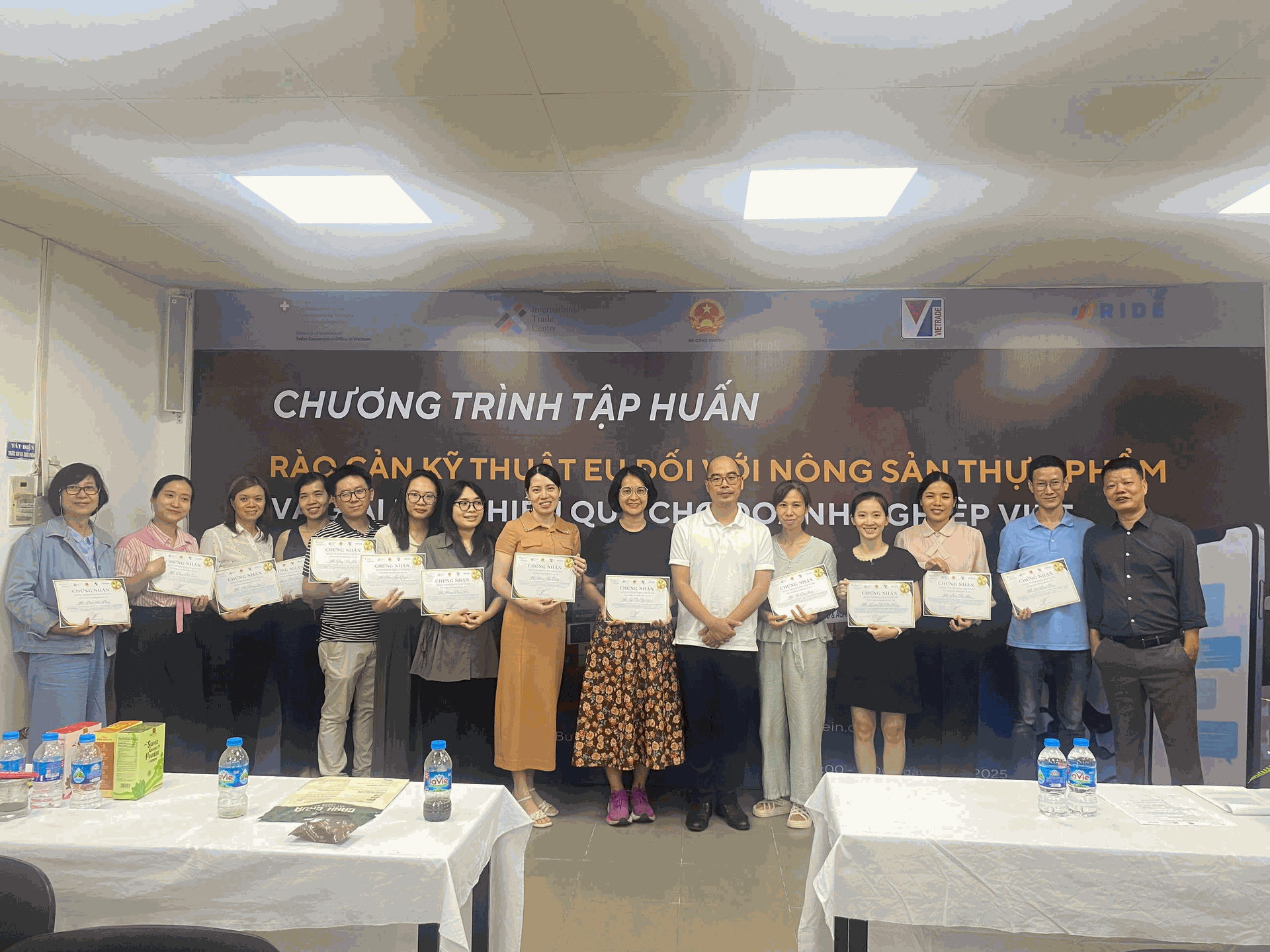
Representatives of RIDE Institute and experts awarded certificates to participating businesses.
The training program ended with a lot of useful knowledge and practical solutions, helping Vietnamese businesses to be more confident when participating in the global supply chain. RIDE Institute is committed to continuing to accompany businesses, contributing to bringing Vietnamese agricultural products and food to the world map.
Learn more about food labeling knowledge here!
Become smart and trustworthy businesses in the Vietnamese agricultural export market.
